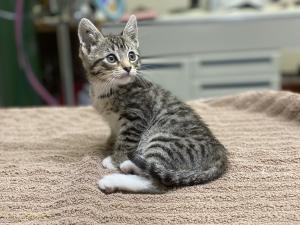New Hampshire cat anti-declaw bill (HB 231) killed under questionable circumstances
Veterinarians say banning declawing will protect cats, the public and veterinarians, but the New Hampshire anti-declaw bill was killed despite much support.
Senator Howard Pearl (R-Loudon) said “he heard from many veterinarians that when this procedure is suggested it is not encouraged unless medically necessary. In fact, this procedure is not even being taught in the colleges today. House Bill 231 is looking to impose regulations when in reality this is not an issue in New Hampshire. The bill is unnecessary which is why a majority of the committee voted in favor of the motion to inexpedient to legislate” and moved to table the bill. Senator Sharon Carson (R-Londonderry) moved to table.
However, many veterinarians support the ban on declawing. An American Association of Feline Practitioners survey found that a majority of the 1,200 veterinarians surveyed support declaw bans (https://www.avma.org/javma-news/2020-03-01/avma-revises-declawing-policy). New Hampshire veterinarian Karen Campbell in an opinion piece published in the Keene Sentinel writes “many veterinarians are guilted into performing unethical surgeries at the behest of their human clients. And without legislation banning the procedure, clients simply shop around until they find a veterinarian willing to comply.”
Senator Daryl Abbas (R-Salem) opposed the motion to table saying “I love cats.” Senator Debra Altschiller (D-Stratham) also opposed the motion to table saying “Only 20 people oppose this bill and 123 citizens reached out in support of House Bill 231 now ask us to vote against that tabling motion,” and cited the many organizations including the American Animal Hospital Association who strongly oppose declawing.
After listening to the “nays” and “ayes,” Sen. Bradley, with some hesitancy, said “the ayes, in my opinion, have it.”
In response, Mike Bordes (R-Belknap) said, “Senator Bradley did not preside correctly, and the nays were definitively louder than the yays. This decision will continue to harm our beloved felines. The decision by Senator Bradley basically states that New Hampshire is ok with animal cruelty, which in my view is not where the majority of New Hampshire citizens stand.”
Lori Shepler, president of CitytheKitty.org concurs. Shepler recorded the audio and Our Honor tweeted an image comparing the decibel levels with the ayes showing 83.3 decibels and nays showing 85.6 decibels.
Veterinarian Jennifer Conrad, founder and director of the Paw Project says, “I believe that the the majority of New Hampshire’s citizens want their cats to be protected from the cruel and unnecessary surgical toe amputation called “declawing.” The New Hampshire House voted overwhelmingly in support of a declaw ban and it sounds to me, and anyone with decent hearing, that the Senate concurred today. Why Senator Jeb Bradley can’t hear that fact is a mystery. If it’s because he wanted the bill not to progress, does he realize he’s not only condoning but promoting animal cruelty?”
Crystal Heath, a shelter veterinarian and executive director of the non-profit Our Honor says, “we have decades of evidence to show that declaw bans protect cats, veterinarians and the public.” Regarding the harms of declawing, Heath points to a 2017 study (https://journals.sagepub.com/doi/pdf/10.1177/1098612X17705044) showing declawed cats were more than four times more likely to bite, three times more likely to be aggressive, nearly three times more likely to have back pain, three times more likely to excessively self-groom, and seven times more likely to avoid the litter box. Heath says these are “all behaviors that could lead to cats being relinquished to the shelter or euthanized.”
Declawing has already been banned in Maryland and New York. More than 40. other countries have also outlawed declawing. Representative Bordes says he will introduce the bill again next year.
See full press release at: https://www.ourhonor.org/blognew/hb231killed
Crystal Heath, DVM
Our Honor
email us here
Visit us on social media:
Facebook
Twitter
LinkedIn
Instagram
YouTube
Other
Senate floor discussion and vote to table HB231
Legal Disclaimer:
EIN Presswire provides this news content "as is" without warranty of any kind. We do not accept any responsibility or liability for the accuracy, content, images, videos, licenses, completeness, legality, or reliability of the information contained in this article. If you have any complaints or copyright issues related to this article, kindly contact the author above.

